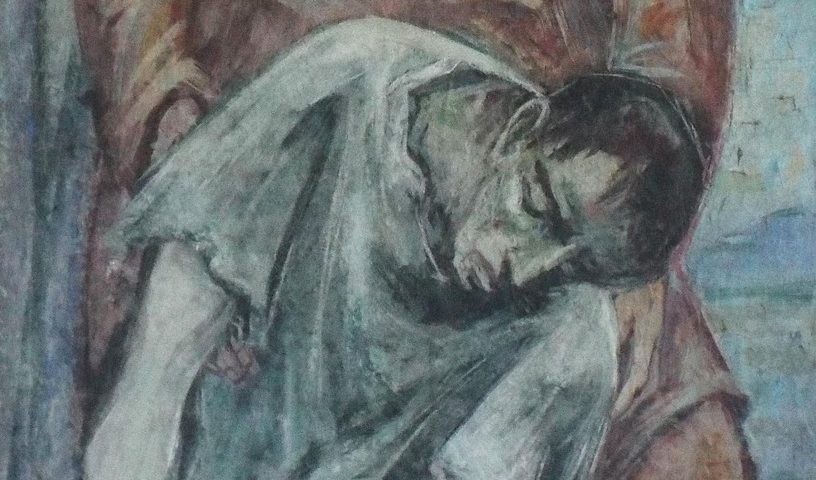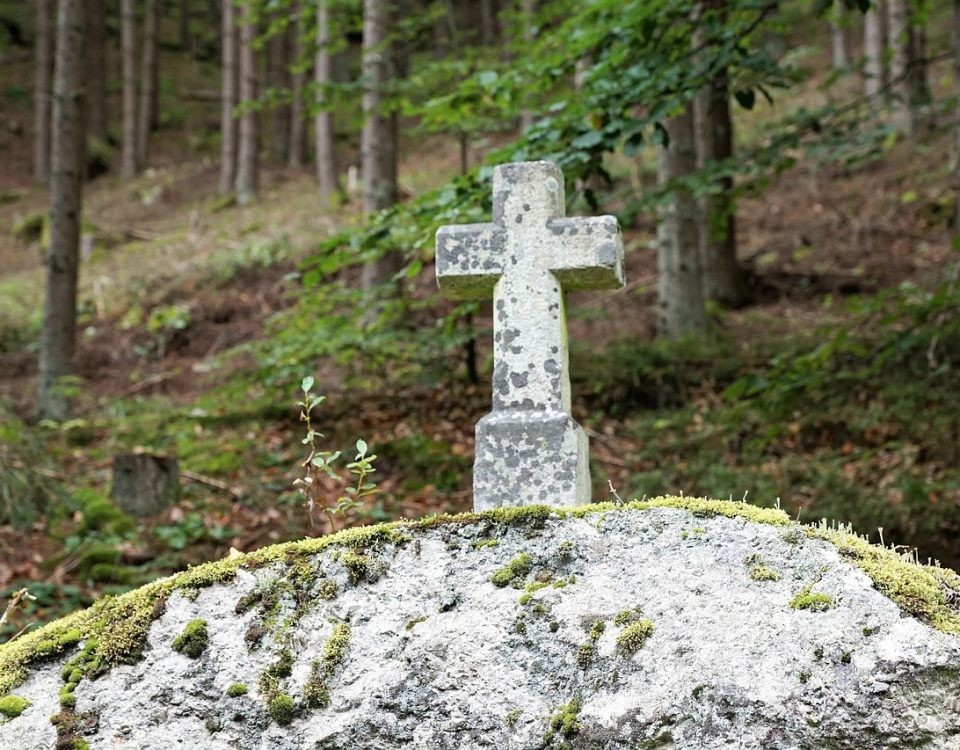The final question, I think, at the judgment, the last thing we’ll be asked after all else, after our sins have all been laid bare and examined, at the end of that salvation which Paul said will burn us a little—“saved, but only as through fire,” is how he put it—after all that, as I said, there will, I think, be one last question we will need to answer, and correctly, if we are to be welcomed into heaven.[1] A simple question, a curious question after all those questions about all our sins, but really a more important one, this question: Will you rejoice?
It seems silly, of course, as if such a question wouldn’t need to be asked—Will you rejoice?—but maybe it does. Heaven, whatever it is, is the “joy of your Master.”[2] It is not a place of sadness or sullenness or resentment or grudges; it isn’t even a place wherein we will feel the pleasure of righteous vindication. The thrill of God’s victory over evil and death will instead be something pure. The angels are pure; the forgiven and the saints are pure; the joy is pure. And so, impure joy is not welcome; impure joy is impossible, I think, in heaven. Which is why it is an important question—Will you rejoice? It’s why I don’t think we’ll be allowed in heaven unless we’re finally able to answer yes and mean it.
I am thinking here of the elder son, the good son. His brother was the prodigal; his brother was the stubborn fool who took his inheritance and left and squandered it and ended up among the swine. Now, of course, I do identify with that one too; I too am so stubborn and stupid at times, running away from the Father towards filth—but I don’t want to talk about that; I am thankfully a child of God’s mercy. But it’s the good son, you see, I find it more difficult to contemplate, who worries me more, as I see myself in him—in his righteous anger, in his inability to rejoice.
The prodigal son has come home, the fatted calf killed, the feasting begun, but the son, the good son, burns with anger simply at the thought of it. The fool has come home, no punishment exacted, what is the justice of that? “But he was angry and refused to go in,” Luke writes; a haunting line if you think about it; he would not rejoice. His father begs him to come in, but the good son refuses. He accuses his father of ridiculous mercy; he underlines his brother’s crimes, exaggerates his sins—those “prostitutes,” he mentions, there’s no mention of that; the man is lambasting his brother.[3] He’s angry, understandably angry. And so, he “refused to go in.” Will you rejoice? No, no thank you. It is, I wonder, one of the saddest moments in the whole of the Bible—refusing to rejoice.
So, what’s the lesson here? First, I think it’s that, no matter what, we must come to terms with the truly inexhaustible mercy of God. We must, as if our souls depend on it, accept what the poet Charles Péguy called God’s “strange calculation”—“this, my child, is how the books are kept with God,” he wrote.[4] God forgives the prodigal; God does not let go of Jacob.[5] He forgives the sinner whose sins made your blood boil—even that one, even the worst one. Will you rejoice in that act of grace, in the incomprehensible mercy that will force you finally to love that person you hate? Will you rejoice? Do you want to be in heaven with the wickedest and worst person you can imagine? Or will you hold onto it, that righteous anger, even after God himself has decreed mercy? Will you accept that God can forgive the person you think belongs in hell? Or will you, like the elder brother, refuse to go in? I’m asking about your capacity to love: Can you love your enemies, do good to those who hate you, bless those who curse you?[6] Will you rejoice that God loves them too? I mean, what if heaven depends on that question?
But it’s also a question you must answer as it relates to yourself. Will you rejoice in the fact that God has forgiven you? I know that up to this point I’ve been talking about the person we can’t believe God has forgiven; I’ve asked you to think about how you may be like the elder brother, hating the prodigal. Now, I could talk for hours on this parable, but I won’t put you through that; I simply want to end by saying that sometimes within ourselves, in each one of us, there is both the prodigal son and his elder brother. That is, sometimes I don’t want to accept how merciful God has been with me. Sometimes I can’t believe God has forgiven me, forgiven my sins, those terrible sins. Sometimes I want to keep punishing myself, beating myself up, even after I’ve heard the words of absolution; sometimes I play the elder brother to myself. Can I rejoice in God’s mercy for me? Can I really accept that I am a beloved child of God and not that worthless thing I sometimes think I am? Can I accept God’s love for me and accept what that means—that I am worthy of my own love and my own respect?
Now, as I said, I could go on, but I’ll stop there. I just want us to think about mercy and what it means—about how God’s mercy means we must come around to loving the worst of us and how we must come around even to loving ourselves. Will we rejoice in such an eternally profound love? Or will we refuse to go in, waiting just outside heaven until we finally understand? Until we finally accept that truly divine love? Amen.
[1] 1 Corinthians 3:15
[2] Matthew 25:21-23
[3] Luke 15:25-30
[4] Charles Péguy, The Portal of the Mystery of Hope
[5] Genesis 28:10-19
[6] Luke 6:27-28
© 2025 Rev. Joshua J. Whitfield










